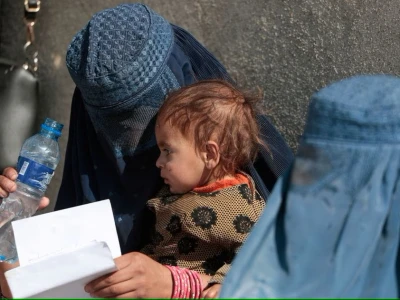
UN says concerned about lack of women in China's top government
Feminist voices have also been muzzled and in recent years, the government has increasingly emphasized the value of traditional roles for women as caregivers.
HONG KONG, May 31 (Reuters) - An absence of women among China's top leadership is concerning, the United Nations said in a report, as it recommended China adopt statutory quotas and a gender parity system to quicken equal representation of women in government.
The recommendations for China by the UN Committee on the Elimination of Discrimination against Women, published on Tuesday, was made alongside findings on Germany, Iceland, Sao Tome and Principe, Slovakia, Spain, Timor-Leste and Venezuela.
The committee said that while China's representation of women in political and public life has increased, it was concerned that women only represent 26.54% of deputies to the 14th National People's Congress. It urged China to increase the number of women in all government bureaus including the judiciary and foreign service, particularly at decision making levels.
"Since October 2022, there have been no women among the 24 members of the politburo of the Communist party of China for the first time in 20 years, and no women among the seven members of the standing committee of the politburo."
The committee said it was concerned about the excessive restrictions on the registration of non-governmental organisations as well as reports of intimidation and harassment against women human rights defenders.
China’s foreign ministry did not immediately respond to a request for comment on the report.
The UN also urged China to repeal the "disproportionate restrictions" on NGO registration and ensure that women human rights defenders are not subject to intimidation, harassment and reprisals for their work.
Chinese President Xi Jinping's decade as the party's general secretary has seen the number of women in politics and elite government roles decline and gender gaps in the workforce widen, academics and activists say.
Feminist voices have also been muzzled and in recent years, the government has increasingly emphasized the value of traditional roles for women as mothers and carers.




